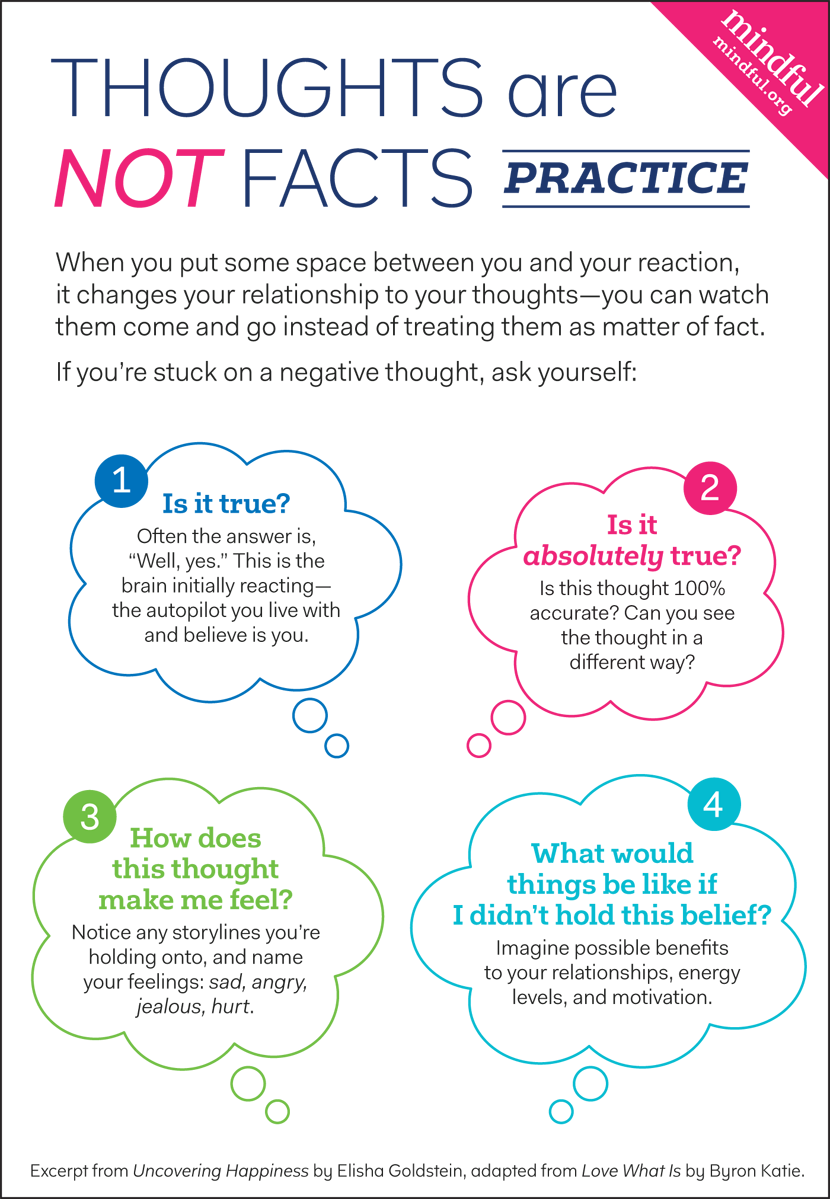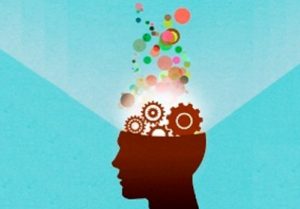Thoughts Are Not Facts (Practice)
 So you’re waiting in the hallway with your mind spinning about how it’s been a pretty crappy day and life just doesn’t seem to be moving in the direction you’d like it to. Your friend walks by you and although you raise your hand to wave hi, she looks at you and just walks by.
So you’re waiting in the hallway with your mind spinning about how it’s been a pretty crappy day and life just doesn’t seem to be moving in the direction you’d like it to. Your friend walks by you and although you raise your hand to wave hi, she looks at you and just walks by.
Take a moment to sense what happened in your mind before reading any further.
Various thoughts may have arisen in connection with uncomfortable emotions:
• “What did I do wrong?”
• “I’m worthless.”
• “I knew it, nobody likes me.”
• “What the hell is wrong with her?”
• “What’s the point, really.”
OK…now let’s say your boss just told you what a fantastic job you’ve done and how she’s going to give you a 15% raise and an extra week vacation. This is great news…as your mind is spinning around all the ways this will enhance your life, your friend walks by and as you raise your hand to say hi, she just walks by.
Now what comes up in your mind?
Many people might have an alternative viewpoint here.
• “I wonder what’s wrong with her.”
• “I hope she’s ok.”
• “Maybe she didn’t see me.”
Same event, different precipitating event and mood, different interpretation.
The bottom line: Thoughts simply aren’t facts, they are mental events that pop up in the mind and are dependent on our mood. In this case, dependent on the precipitating event that led to the mood of feeling depressed versus excited.
Next time your mind jumps to a conclusion that inevitably sends in you in a spiral toward depression or anxiety, check to see where your head was at the time of that interpretation. What just occurred prior? There may be some clues as to why the interpretation was made that way.
Take this into your life and see what you notice.
Warmly,
Elisha Goldstein
P.S. A Course in Mindful Living is my 6-month online mentorship program that’s packed with evidence-based methods to retune the nervous system to calm anxiety, build confidence, and create a life you love. With weekly teachings, experiential practices, live mentorship, and live Q&Rs, it’s got some of the most robust community support you’ll find in an online course. Learn more here.
 Tags: mindfulness, mindfulness practices, negative thoughts, thoughts
Tags: mindfulness, mindfulness practices, negative thoughts, thoughts










Why I am insecure at my age 47